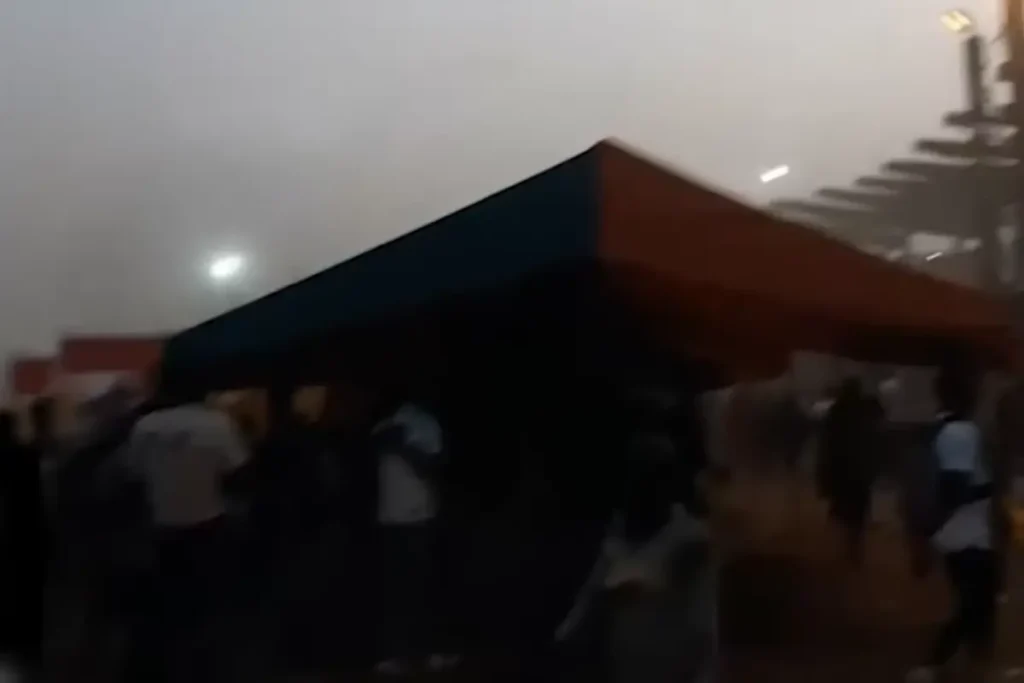
SIGNS: Guinea Soccer Match Ends In Deadly Stampede That Claims 56 Lives

Chaos erupted at a soccer match in Nzerekore, Guinea, leaving at least 56 dead in what is being called one of the worst sports tragedies in recent history.
The incident appeared to be kickstarted after fans protested a referee’s call during the national tournament honoring Guinea’s controversial military leader, Mamadi Doumbouya. Panic spread like wildfire, leading to a stampede that claimed dozens of lives, many of them children.
Video footage from the Third of April Stadium revealed desperate fans scaling fences to escape as others were crushed at the gates.
“The gates, that’s where the stampede happened,” Cissé Lancine, a survivor who managed to escape by climbing over a wall, said. “I was saved because I did not rush towards the exit.”
With an estimated crowd of 20,000 to 30,000 gathered to watch teams from Labe and Nzerekore battle it out on the pitch, the event spiraled into madness. Enock Loua, mourning the loss of his niece, described the heartbreak.
“We have a hard time realizing what happened to us, it is as if the sky has fallen on our heads,” Loua said.
WARNING: DISTURBING VISUALS ! Tragic Stampede at Guinea Football Match Claims Over 56 Lives
At least 56 people died in a stampede during a football match in N’Zerekore, Guinea, after fan clashes erupted over a referee’s decision.
Hospital sources fear the toll could rise, with… pic.twitter.com/pbMcIdn24Y
— Subodh Kumar (@kumarsubodh_) December 2, 2024
Reports suggest that enraged fans threw stones, prompting security forces to unleash tear gas. Media Guinea, a local outlet, reported, “Supporters threw stones. This is why the security services used tear gas.” Checkpoints have since been erected throughout Nzerekore as soldiers patrol the hospital where victims are being treated, while most shops in the city remain shuttered.
The tragedy casts a shadow over Doumbouya, the military ruler who seized power in 2021 and whose political ambitions have stirred controversy. Critics argue the tournament was staged to boost his popularity ahead of a potential presidential run, despite a transition charter banning his candidacy. The opposition coalition blasted the event as an effort to promote “illegal and inappropriate” ambitions.
Guinea joins the grim list of nations where sports-related stampedes have turned deadly. The 2022 stampede at Indonesia’s Kanjuruhan Stadium killed 135, while Ghana’s Accra Sports Stadium disaster in 2001 claimed 126 lives. These tragedies underline the dangers of overcrowding and poor crowd control, especially in high-stakes matches.
As Guinea enters three days of national mourning, announced by Doumbouya himself, the nation grapples with grief and unanswered questions. Who will be held accountable for this catastrophe? Only time will tell, but for now, the world mourns yet another senseless loss of life in a place meant for joy and unity.

